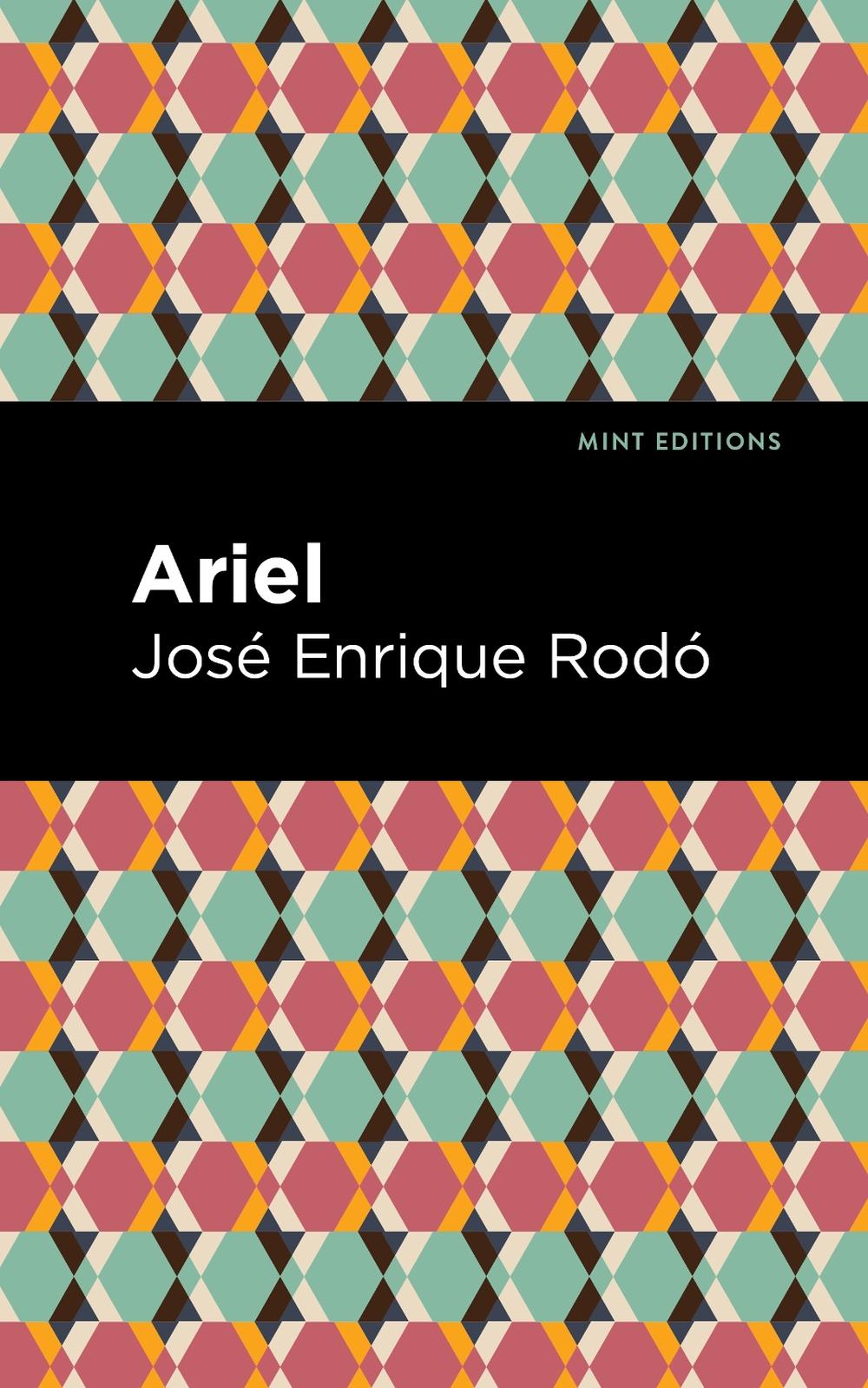
Ariel
$7.93
- Paperback
68 pages
- Release Date
17 January 2022
Summary
Ariel: An Ethical Gospel for a New World
Ariel (1922) is an essay by Jose Enrique Rod. Originally published in Spanish in 1900, Ariel was translated into English just five years after the author’s death by F. J. Stimson, the former U. S. Ambassador to Argentina. The essay was immediately influential in Uruguay and across Latin America as an essential document of modernismo, a literary movement which sought to unite classical values and contemporary culture…
Book Details
| ISBN-13: | 9781513218236 |
|---|---|
| ISBN-10: | 1513218239 |
| Series: | Mint Editions |
| Author: | Mint Editions, Jose Enrique Rod |
| Publisher: | Mint Editions |
| Imprint: | Mint Editions |
| Format: | Paperback |
| Number of Pages: | 68 |
| Release Date: | 17 January 2022 |
| Weight: | 116g |
| Dimensions: | 203mm x 127mm |
You Can Find This Book In
About The Author
Mint Editions
José Enrique Rodó (1871-1917) was a Uruguayan philosopher, educator, and essayist. Born and raised in Montevideo, Rodó was a major figure of the modernismo literary movement. In 1898, he was appointed professor of literature at the University of the Republic. Additionally, Rodó served as the director of the National Library of Uruguay and as a member of the Chamber of Deputies. Through his correspondence with Leopoldo Alas of Spain, José de la Riva-Agüero of Peru, and Rubén Darío of Nicaragua, Rodó became the leading theorist of modernista literature, which sought to unite classical values and contemporary culture through a devotion to beauty and form. His major contribution to Latin American literature was Ariel (1900), an influential essay inspired by characters from Shakespeare’s The Tempest. The essay is structured as a lecture by Prospero on authors from throughout European history. Ariel and Caliban, respectively the positive and negative aspects of human nature, represent the opposing forces of good and evil, the beautiful and the utilitarian in everyday life. Throughout his career, Rodó criticized the process of nordomanía, a term he used to describe the growing influence of North American values on Latin American culture.
Returns
This item is eligible for free returns within 30 days of delivery. See our returns policy for further details.




